In 1967, she became a member of the Socialist German Student Union. Here, the situation of women in society was not an issue, not even among the women. Together with Marianne Herzog, she founded the Action Council for the Liberation of Women and the first Kinderläden – anti-authoritarian, autonomous children’s day-care centers – in Berlin. Unpaid care work, too few childcare options, hardly any support from men in raising children – these were issues that are still relevant today, many years later. At the delegates’ congress of the SDS in September 1968, she delivered her famous ‘tomato speech’, stating that social change is not possible without the liberation of women. What is private, is political. The men responded to her speech with derisive laughter. But the new German women’s movement had begun.
Today, at over 80 years of age, she is cleaning house: The dress she loved to wear as a young woman when she lived in Finland in the early 1960s, the prehistoric Venus figurines with voluptuous breasts and big bellies celebrating women as mothers, and, of course, copies of the magazine Women and Film, which she launched in 1974. “Tidying up, after all, also has an inner meaning, something transcendent.”
When she was 8 years old, she experienced the Dresden bombing in February 1945 with her mother and little brother, and shortly thereafter the rape of women by the Red Army in Karlsbad. In an interview, she reports, “We played rape as children.” In 1992 she made a film about it: Liberators Take Liberties. In her film, affected women have their say, as well as former Red Army soldiers and children conceived in this violent situation.
Violence against women and their oppression by patriarchal structures are the central themes of her life.
In her 1989 film, The Germans and Their Men, she confronts a group of men with the fact that 330,000 women are raped by men in the Federal Republic of Germany every year. “What do you think about being a member of the sex that does this?” Helke Sander doesn’t let up, demands answers – calmly, clearly, matter-of-factly.
Helke Sander: Cleaning House
Documentary by Claudia Richarz
82 min, D 2023
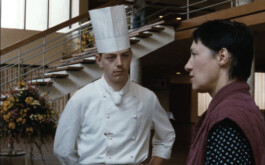
In her feature film The All-Round Reduced Personality - Redupers (1977), Helke Sander takes on the lead role of single-mom photographer Edda, directs and writes the screenplay: “What fits into a day and what doesn’t? What can you cram into 24 hours, what is always left over and also demands justice?” Redupers earns her numerous awards at home and abroad. The film still has its audience today.
With the short film No. 1 – From Reports of the Guard & Patrol Services, she wins a Golden Bear in 1985. The main character is a young mother looking for an apartment for herself and her two children.
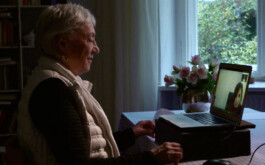
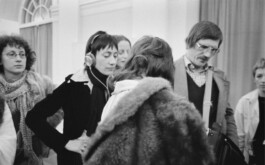
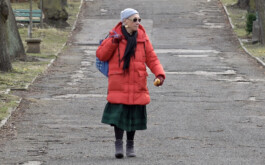
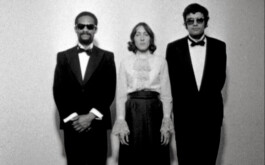
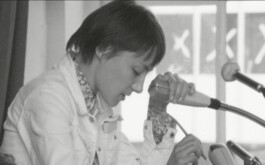
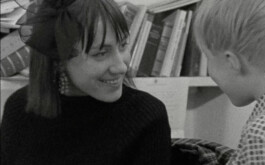
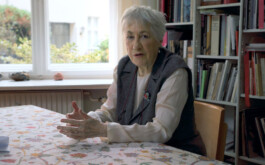
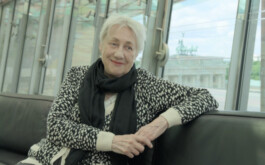
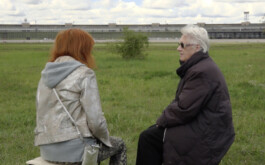
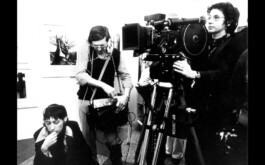

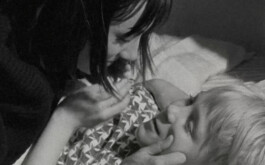
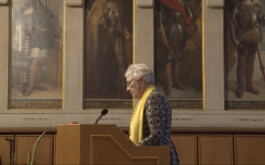
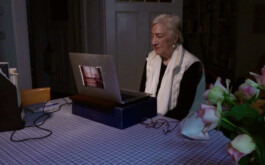
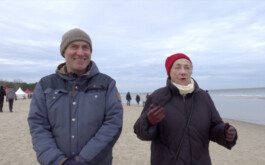
Scene photos from the film
Copyright Claudia Richarz Film, Deutsche Kinemathek and bpk / Abisag Tüllmann
In Redupers, Sander quotes: "Imagination, aesthetically understood, is the passionate interest in things that are not one’s own business: in the misfortune or happiness of strangers, in the fate of a leather ball, pleasure in that which has no meaning. At any rate, you should be free to choose that which is none of your business." (Elisabeth Lenk)
Like many female artists, she could only make her films with persistence and by overcoming resistance. Many projects remained unrealized, the financing did not come. Her companion Gesine Strempel says about this in the film: "What women want is very foreign to many men. There is a social consensus shaped by men about what constitutes culture and what does not."
Helke Sander was politically active and raised uncomfortable issues throughout her life. She initiated and was actively involved in implementing many achievements for women that we take for granted today: “Those who reflect, also radicalize.” In the film, Claudia Richarz explores what this may mean for Sander’s own attitude toward life, her own son, and love. With impressive clips from Sander’s work, the film connects her artistic work with her life.
Behind Helke Sander’s emancipated attitude there is the continuous call to reflect, to not accept what is apparently self-evident, and to always listen to oneself, regardless of what others think is right.
In 1967, she became a member of the Socialist German Student Union. Here, the situation of women in society was not an issue, not even among the women. Together with Marianne Herzog, she founded the Action Council for the Liberation of Women and the first Kinderläden – anti-authoritarian, autonomous children’s day-care centers – in Berlin. Unpaid care work, too few childcare options, hardly any support from men in raising children – these were issues that are still relevant today, many years later. At the delegates’ congress of the SDS in September 1968, she delivered her famous ‘tomato speech’, stating that social change is not possible without the liberation of women. What is private, is political. The men responded to her speech with derisive laughter. But the new German women’s movement had begun.
Today, at over 80 years of age, she is cleaning house: The dress she loved to wear as a young woman when she lived in Finland in the early 1960s, the prehistoric Venus figurines with voluptuous breasts and big bellies celebrating women as mothers, and, of course, copies of the magazine Women and Film, which she launched in 1974. “Tidying up, after all, also has an inner meaning, something transcendent.”
When she was 8 years old, she experienced the Dresden bombing in February 1945 with her mother and little brother, and shortly thereafter the rape of women by the Red Army in Karlsbad. In an interview, she reports, “We played rape as children.” In 1992 she made a film about it: Liberators Take Liberties. In her film, affected women have their say, as well as former Red Army soldiers and children conceived in this violent situation.
Violence against women and their oppression by patriarchal structures are the central themes of her life.
In her 1989 film, The Germans and Their Men, she confronts a group of men with the fact that 330,000 women are raped by men in the Federal Republic of Germany every year. “What do you think about being a member of the sex that does this?” Helke Sander doesn’t let up, demands answers – calmly, clearly, matter-of-factly.

In her feature film The All-Round Reduced Personality - Redupers (1977), Helke Sander takes on the lead role of single-mom photographer Edda, directs and writes the screenplay: “What fits into a day and what doesn’t? What can you cram into 24 hours, what is always left over and also demands justice?” Redupers earns her numerous awards at home and abroad. The film still has its audience today.
With the short film No. 1 – From Reports of the Guard & Patrol Services, she wins a Golden Bear in 1985. The main character is a young mother looking for an apartment for herself and her two children.















Scene photos from the film
Copyright Claudia Richarz Film, Deutsche Kinemathek and bpk / Abisag Tüllmann
In Redupers, Sander quotes: "Imagination, aesthetically understood, is the passionate interest in things that are not one’s own business: in the misfortune or happiness of strangers, in the fate of a leather ball, pleasure in that which has no meaning. At any rate, you should be free to choose that which is none of your business." (Elisabeth Lenk)
Like many female artists, she could only make her films with persistence and by overcoming resistance. Many projects remained unrealized, the financing did not come. Her companion Gesine Strempel says about this in the film: "What women want is very foreign to many men. There is a social consensus shaped by men about what constitutes culture and what does not."
Helke Sander was politically active and raised uncomfortable issues throughout her life. She initiated and was actively involved in implementing many achievements for women that we take for granted today: “Those who reflect, also radicalize.” In the film, Claudia Richarz explores what this may mean for Sander’s own attitude toward life, her own son, and love. With impressive clips from Sander’s work, the film connects her artistic work with her life.
Behind Helke Sander’s emancipated attitude there is the continuous call to reflect, to not accept what is apparently self-evident, and to always listen to oneself, regardless of what others think is right.